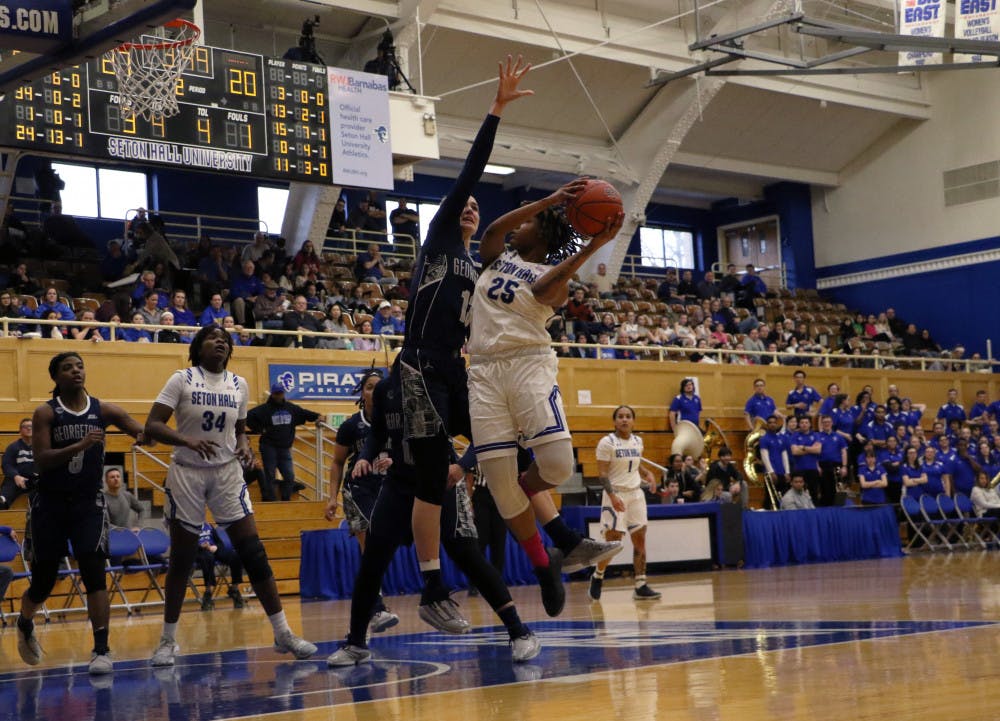The OneVoice Movement, an organization aimed at creating a two state solution as well as peace between Israel and Palestine, hosted a panel featuring a native Israeli and Palestinian which revealed tensions between the two, despite the message they were attempting to convey. Every year the organization hosts a panel with two activists, one Palestinian and one Israeli, who have grown up in the conflict and experienced the negative effects in their everyday lives. This year, Dana Sender, an Israeli born citizen, and Roza Helou, a Palestinian native to the Gaza Strip, are traveling to universities across the country to explain why they have put aside their differences to work toward a common goal of a peaceful resolution to end the conflict. Although the women share the same goal of achieving a peaceful two state solution, they have different motivations, as was evident from the tension between the two during their presentation. "At one point, they argued over what side terrorizes the other more, which is hypocritical when they kept emphasizing that their point in joining OneVoice was to focus on the future of the country, not the past or present tensions," Kholood Qumei, a junior diplomacy student said. Sarah Shedeed, a junior diplomacy student questioned the speakers' wishes for peace. "They obviously had opposing views on the issue," Shedeed said. "I would not believe the two of them actually wanted peace after hearing them talk. They seemed misinformed as well." At one point, Sender said she would "never, ever, ever use the word ‘occupation' to describe the Palestinian territories." However, Shedeed felt it is impossible to solve the Israeli-Palestinian conflict without addressing its history. "The international community recognizes the situation as an occupation; Palestine is officially referred to as the ‘Occupied Palestinian Territories,'" Shedeed said. During the panel, both women detailed life experiences that seem to have contributed to the tensions between them. Helou recalled growing up looking at her father with bar irons between them because Israeli soldiers made him serve time in prison. According to Helou, she joined OneVoice Palestine in 2008 in hopes of bettering the lives of others. "With my fellow Palestinian youth leaders, I'm taking real steps on the ground to end the conflict and the occupation so that future generations can live a normal life," she said. The conflict hit Sender the hardest when she was serving her two-year military service in the Israeli army, which is something all Israeli citizens, including women, must do. "I was working as a social worker for soldiers and their families when one of my good friends was murdered," she said. "I needed to leave Israel for a few months in order to get over the trauma of it all." According to the OneVoice website, "the movement works to forge consensus for conflict resolutions and build a human infrastructure capable of mobilizing the people toward a negotiated, comprehensive and permanent agreement between Israel and Palestine that ends the occupation." As of Feb. 19, 660,372 voices support a two state solution, according to the OneVoice website. Rawan Eewshah can be reached at rawan.eewshah@student.shu.edu.

Comments




